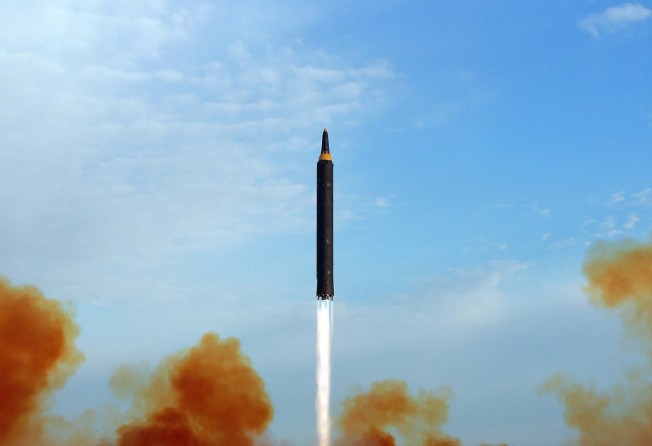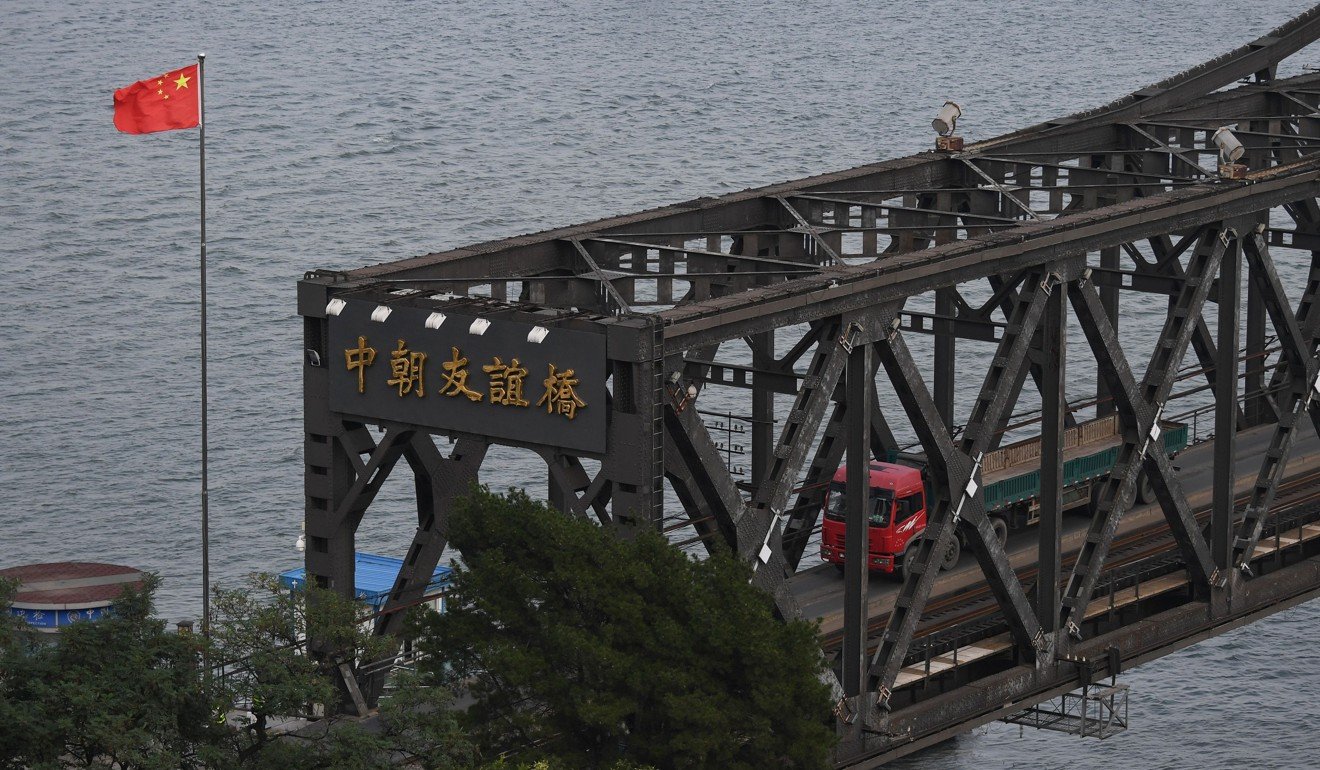China bans tech exports to North Korea with potential to develop weapons of mass destruction
Particle accelerators, centrifuges and seismic monitoring equipment among equipment barred from sale to Pyongyang to help rein in its nuclear programme

China has banned exports to North Korea of items that could have dual uses in helping to develop weapons of mass destruction.
The Ministry of Commerce in Beijing released a list of 32 banned materials, technologies and equipment on Monday, amid international concerns over Pyongyang’s nuclear weapons programme.
The list includes particle accelerators, centrifuges, seismic monitoring equipment, ring-shaped magnets and radiation-detection devices.
The list is in line with a UN Security Council resolution adopted in September to rein in North Korea’s nuclear programme.

The ministry said the bans were effective immediately.
North Korea expressed its willingness to denuclearise the Korean peninsula last month ahead of a planned meeting between its leader, Kim Jong-un, and US President Donald Trump.
Kim also visited Beijing last month, telling Chinese President Xi Jinping that North Korea was committed to denuclearisation as long as South Korea and the US showed sincerity.
The definition of denuclearisation varies among stakeholders but for Pyongyang it means the US has to withdraw its troops from South Korea.
There had been concern that China’s influence over North Korea was waning, but the surprise meeting between Xi and Kim changed that assessment.
Soon after Kim’s Beijing trip, Chinese Communist Party Politburo member Yang Jiechi visited South Korea, a sign that Beijing is showing it still has influence on the Korean peninsula.
China remains North Korea’s biggest trading partner, despite the decrease in trade after the imposition of UN sanctions. Beijing had already restricted the supply of petroleum to North Korea, and North Korea’s imports in compliance with the sanctions.
Analysts said the latest list sent a message to Pyongyang that Beijing would continue to uphold UN sanctions after Kim’s visit.
“China is showing that it won’t relax the sanctions under the UN framework until North Korea gets rid of its nuclear programme,” Jilin University Korean affairs professor Wang Sheng said.
“Even though China-North Korea relations have recovered recently, China wants to tell North Korea that they shouldn’t have any illusions about on their nuclear programme.”
Yang Moo-jin, a professor at the University of North Korean Studies in Seoul, said China still needed to play an active role in reining in Pyongyang’s nuclear programme to protect its regional interests.
“Despite the sanctions, political exchanges between the two countries will continue, as China is North Korea’s only ally that can guarantee the regime’s survival,” Yang said.
“North Korea may express its discomfort [with the sanctions], but it is not likely to strongly resist China’s decision. After all, North Korea needs China for the upcoming talks.”
Additional reporting by Liu Yujing